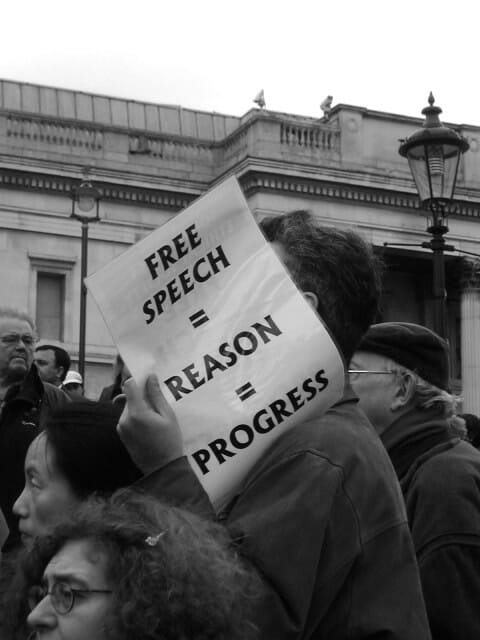 If you follow us on Facebook, you probably know about our ongoing saga with the social media giant over its having banned our promoting our page or our posts. Why is Facebook blocking us from promoting content from the Canna Law Blog on its pages? According to the Facebook Advertising Guidelines, and from what we have been told by Facebook representatives via email, “ads may not promote or facilitate the sale or consumption of illegal or recreational drugs, tobacco products, or drug or tobacco paraphernalia.” But neither Canna Law Blog nor our Facebook page has ever promoted or facilitated the sale or consumption of marijuana. In fact, we studiously delete and ban anyone who tries to use our Facebook page as a forum for selling anything, including marijuana. Our only goal is to educate our readers and stimulate discussion about marijuana, marijuana laws, marijuana business, and marijuana legalization. We do not and will not ever tell anyone to consume as that would be as presumptuous as telling someone that they cannot consume.
If you follow us on Facebook, you probably know about our ongoing saga with the social media giant over its having banned our promoting our page or our posts. Why is Facebook blocking us from promoting content from the Canna Law Blog on its pages? According to the Facebook Advertising Guidelines, and from what we have been told by Facebook representatives via email, “ads may not promote or facilitate the sale or consumption of illegal or recreational drugs, tobacco products, or drug or tobacco paraphernalia.” But neither Canna Law Blog nor our Facebook page has ever promoted or facilitated the sale or consumption of marijuana. In fact, we studiously delete and ban anyone who tries to use our Facebook page as a forum for selling anything, including marijuana. Our only goal is to educate our readers and stimulate discussion about marijuana, marijuana laws, marijuana business, and marijuana legalization. We do not and will not ever tell anyone to consume as that would be as presumptuous as telling someone that they cannot consume.
In other words, we advocate for the freedom of adults to choose for themselves. That’s all.
Facebook’s blanket anti-drug policy impacts our ability to exercise our political speech rights and that frustrates us (and our readers) on a daily basis.
What about other forms of social media? Is the rest of the Internet equally puritanical when it comes to talking about marijuana? Unfortunately, the answer appears to be yes. For example, in 2013, Instagram banned #weed from its site and it continues to shut down accounts that show cannabis images, whether for medicinal or recreational use, even in those states with legal marijuana. Every day, marijuana political speech is curtailed by social media’s aggressive anti-cannabis speech restrictions.
The difference between political and commercial speech is typically pretty stark. Our Constitution’s First Amendment provides the most protection to political speech. Advocacy for marijuana legalization or commentary on marijuana social issues, for example, clearly fall into the realm of political speech. Commercial speech, on the other hand, advertises a product or service for sale and it can be restricted by the government depending on content. In Central Hudson Gas & Electric Corp. v. Public Service Commission of New York, the U.S. Supreme Court set out a four-part test to determine whether government regulation of advertising speech is valid: (1) Does the advertisement involve lawful activity? (2) Does the government have a substantial interest? (3) Does the regulation of the advertisement advance the substantial government interest? (4) Is the regulation the least restrictive means of advancing the substantial government interest?
Since marijuana is still a federally illegal controlled substance, advertising for its commercial cultivation, manufacture, distribution, and even possession can probably be prohibited by the government. In fact, at one point in 2011, the Feds threatened to crack down on medical marijuana advertisers in states where it is legal. Even Colorado (post-legalization) has sought to restrict certain marijuana ads and publications, including High Times Magazine.
Because of current federal laws on marijuana, we do understand prohibiting advertisements for selling marijuana. Facebook does not want to face charges from the Department of Justice that it aided and abetted in the sale of a federally illegal drug. However, where individuals are merely advocating for marijuana legalization or for ending the war on drugs or simply explaining why they enjoy marijuana or what it takes to operate a marijuana business legally in various states, they should not be subject to bans and restrictions from social media sites that are either unable or unwilling to discern the difference.
Free speech and all of us (even those who vehemently oppose marijuana legalization) all lose when social media sites quash legitimate speech by unfairly and undeservedly pulling the plug on legitimate content.























